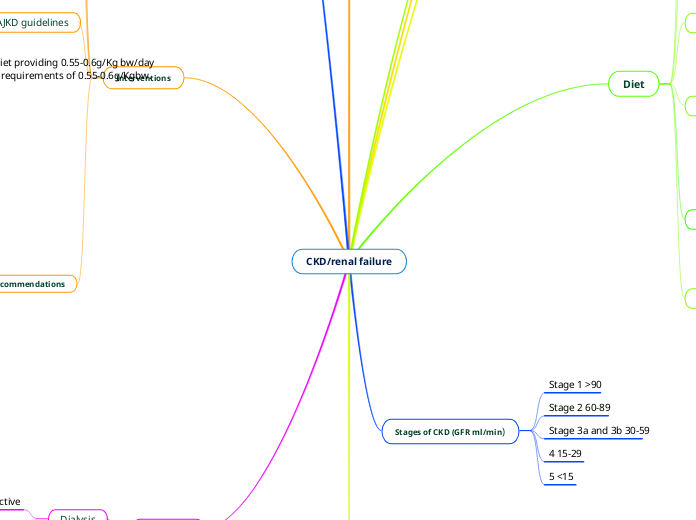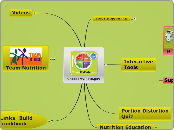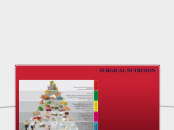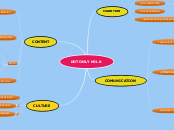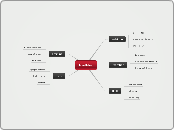CKD/renal failure
Treatment
Transplant
Dialysis
Haemodialysis (machine) 3x 4-5hours / week. If at home= 7-9h per night
Peritoneal (optimal as less restrictive diet)
Interventions
Nutrition recommendations
Protein requirements increase at commencement of dialysis
ONLY decrease K+ and PO4 if serum levels high
Stage 5 Peritoneal dialysis
Fluid overloaded or HTN 800ml + PDUO
protein= 1.2g/Kg IBW. Acute illness >1.3g/Kg IBW
energy= 146kJ/kg IBW + glucose from dialysis. Acute illness = >146kJ/Kg IBW
Stage 5 haemodialysis
Fluid 500ml
K+ = <100mmol/Kg IBW
Energy <60yo = 146Kj/Kg IBW >60yo = 125-146Kj/KgIBW
stage 4
Protein 0.75-1.0g/Kg IBW
Energy= minimum 146kJ/Kg IBW. 125-146kJ/kg IBW >60years of age
stages 1-3CKD
K+ 2800-3800mg/day
Energy= for ideal BW (if diab neuropathy: <50% CHO)
AJKD guidelines
CKD 3-5 metabolically stable NOT on dialysis and WITHOUT diabetes= low protein diet providing 0.55-0.6g/Kg bw/day OR a very low protein diet 0.28-0.43g/Kgbw + additional AA analogs to meet protein requirements of 0.55-0.6g/Kgbw.
Protein- NOT on dialysis, WITH diabetes- 0.6-0.8g/Kgbw + glycemic control
CKD 3-5D (2D) at risk of protein-energy wasting, minimum 3 month trial of ONS to improve nutritional status
Fruits and vegetables to decrease BW, BP and net acid production. Mediterranean diet in CKD 1- NOT on dialysis, with or without dyslipidemia; improve lipid profiles
Decrease K
Low K+ veg = cabbage, asparagus, tomato, carrots, capsicum, mushrooms, zucchini, onion, canned beetroot, cauliflower.
High K+ = avocado, corn, baked beans, veg juice, pumpkin
Limit to 1 starchy veg/day
Low K+ fruits = berries! passionfruit, apple, pear, melon, grapes, mandarin, watermelon
High K+ fruits = banana, dried fruit, pineapple, peach, mango, kiwi
Foods high in K+ = Sweetened beverages, muffins, hot chips, ice cream, sausage rolls.
If K+ is the problem, address discretionary. They're absorbed quicker, Therefore even if they're not as high as a fruit they're eating, whatever amount is in them will all be absorbed compared to a "healthier" food that's initially higher in K+.
Decrease sodium
Swap table salt for herbs and spices, swap convenience foods (T/A, servo food) for sandwiches, nut bars/un-slated trail mix, fruit, halve portions of meals eating out (eg pub)
Fluid restriction
Remove excess fluid, swap cereal for toast (no milk), swap fresh fruit for dried fruit, break up water consumption throughout the day
Client hx
Medication:
Anti-hypertensives (ACE inhibitors) eg PRIL
Diuretics (frusemide)
Renins (to lower K+)
Immunosuppressants (Cyclosporin, mycophenolate, Azathioprine)
Iron supps (EPO)
Steroids ("one")
Calcitriol (Vit D)
Medical
Previous and current: surgery, dialysis, stage of CKD
Management
Stage 4-5= manage metabolic disturbances, prevent anaemia, malnutrition and acidosis, manage HTN, nausea and fluid balance
Stage 3 = prevent volume depletion, prevent bone-mineral disease, prevent electrolyte disturbances, prevent malnutrition
Stages of CKD (GFR ml/min)
5 <15
4 15-29
Stage 3a and 3b 30-59
Stage 2 60-89
Stage 1 >90
Diet
PO4
PO4 from plant based = lower absorption (70%) from animal products = 100% absorption. FRESH is best, limit TA + animal proteins
foods high in PO4 = nuts, bacon, PB, cola and pepsi, beer, chocolate, muesli
All stages= healthy eating
stages 4-5 protein per DN prescritption- HIGHER if on dialysis!
stage 3- moderate protein and malnutrition
stages1-5 manage sodium
Stages 1-3= wt management and mx comorbidities
K (Potassium)
AJKD guidelines: CKD 3-5 or CKD5D(2D) 24hr recall, food frequency questionnaire = alternative methods
AJKD guideline: CKD 3-5D= 3 day food record preferred method to assess diet: on dialysis and NOT on dialysis
Stage 3-5 Reduce to maintain normal serum level. Limit to 1mmol/kg IBW if serum is >6mmol/L
Stage 1 & 2 = 2800-3800mg/day
Fluid
Fluid restriction? Dialysis? MUST meet restriction amount
Na
Transplant <100mmol/L/day. If stable, restrict Na to 80-100mmol/L/day
Stage 5 <100mmol/L/day " "
Stages 3-5 <100mmol/day avoid salt substitutes (high in K)
Stage 2- 87mmol/L/day
Stage 1- 87mmol/L/day
AGHE guidelines & HEHP
Biochem
PO4 (0.8-1.4mmol/L
High = itching, Ca+ and PO4 deposit in tissues
K+ (3.5-5.5mmol/L)
High = irregular HB, nausea, weak pulse
Low= weakness, cellular impairement
Anthro
BW should be adjusted if wt is <95% or >115% of IBW
Pre and post dialysis. If continuing to lose dry weight= losing fat and muscle. If coming off dialysis and still "wet" = losing fat and muscle NOT fluid.
Dry weight, wet weight
Risk factors:
Diabetes+++, HTN, fam hx, obesity, smoking, >60yo, ATSI, Hx acute KD, recurring UTI's.
Monitoring and evaluation
SGA at all stages
Stage 5, D, PD- 45-60min monthly
Stages 4-5 post transplant 20-30 min 3 monthly
Stages 1-3: 20-30 min 6 monthly
